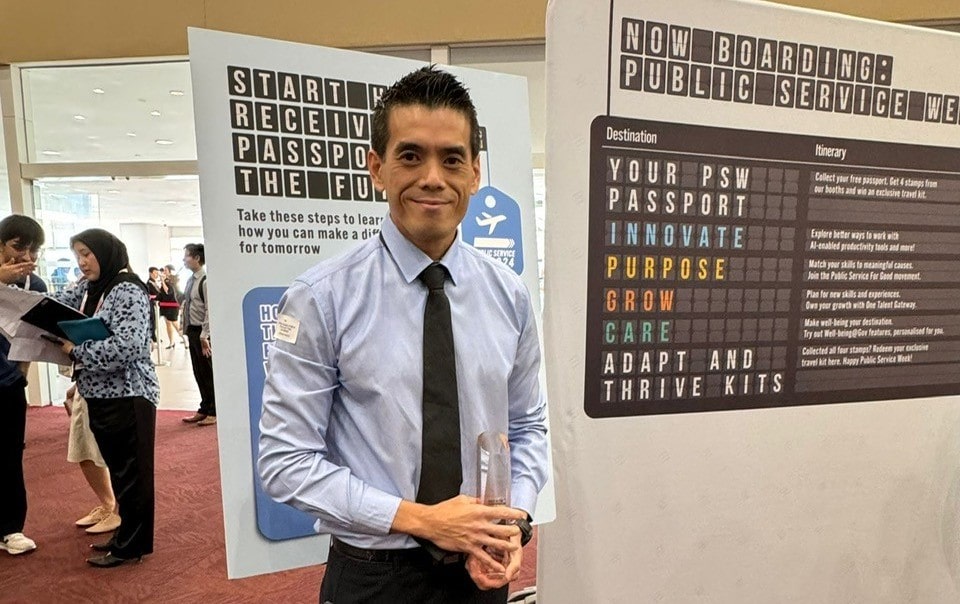 Exemplary SkillsFuture @ Public Service Award winner Chua Jeun Kee posing with his prize. (Photo: HTX)
Exemplary SkillsFuture @ Public Service Award winner Chua Jeun Kee posing with his prize. (Photo: HTX)
Many people might consider a PhD to be the epitome of learning, but for Chua Jeun Kee, the journey of gaining knowledge has no finish line.
This was exactly why the lead engineer at HTX’s Biometrics & Profiling Centre of Expertise (B&P CoE) decided to leave his comfort zone and expand his knowledge in a separate field – software development.
Driven by his insatiable appetite for learning, he attended more than 60 courses related to software development between 2022 and 2023.
For his relentless efforts to learn and upskill himself, Jeun Kee was on 10 July 2024 awarded the Exemplary SkillsFuture @ Public Service Award. He was the only employee from HTX to receive this award.
Jeun Kee, who has a PhD in mechanical engineering, shares with us what drives him in his never-ending quest for knowledge.
What prompted you to begin upskilling?
I started learning about programming and data analytics around 2017. Back then, I simply wanted to learn something new and did not have any intentions of changing careers. However, I learned that Singapore’s engineering sector was undergoing significant structural changes and noticed a shift away from traditional products to specialised digital services.
Many engineering firms out there were increasingly incorporating software solutions and I was concerned that my skills would be outdated. I knew that upskilling and learning new skills would be difficult, but considering the changing economy, I felt it was important that I do so.
I've found that learning a new skill that I’m truly interested in is the most sustainable way to go about things. With this approach, I’m always motivated to keep learning, regardless of whether there's an immediate reward.
What about software development appealed to you?
When I first started out, I was excited by the idea that I could turn an idea or concept into a tangible product. Given the rapid evolution of software development tools and frameworks, I feel excited as there’s always something new for me to learn and experiment with.
What were the most difficult aspects of pivoting from mechanical engineering to software development?
The hardest part was figuring out where to start as there were so many programming languages available. I was advised to start with a language that felt most intuitive to me, and this was why I ended up learning about Python – it was the primary backend language used by the B&P development team.
How did you manage to attend so many courses between 2022 and 2023?
Most of the courses I took were online courses available on platforms like Udemy and Coursera. Since these courses were online, I’d often fit them around my work and family commitments. I took most of these courses during my free time on the evenings and weekends.
How did HTX help facilitate your learning journey?
My supervisors were really supportive of my learning journey. They allowed me to apply the new skills I’d learnt on the job, and this helped me learn through experience.
Initially, I developed simple testing apps to support B&P’s technical trials. Once I improved my software development skills, I was given the chance to work as a full-stack developer for a co-development project with one of our strategic partners, Thales.
This project was part of an exploratory initiative to develop a proof-of-concept (POC) solution for a next-generation “breeze-through” biometric identification, where biometric clearance is performed on multiple individuals as they walk through an identification zone, instead of the lane-based gantry setup we have today.
As an embedded full-stack developer, I got to work alongside Thales software engineers on both front-end and back-end development. This industrial exposure was invaluable as I got to learn from global software development experts and expand my practical knowledge.
What also helped was that HTX often hosted initiatives like the HTX Data Analytics CoP, HTX Learning Week, and TechXchange, where I could learn from my peers and industrial speakers and be updated on the latest cutting-edge developments in the tech world.
What advice do you have for those looking to upskill?
In my experience, everyone's situation is different, so there isn’t a one-size-fits-all approach.
However, I can share what has worked for me: I've found that learning a new skill that I’m truly interested in is the most sustainable way to go about things. With this approach, I’m always motivated to keep learning, regardless of whether there's an immediate reward.
We are always seeking inquisitive and innovative individuals to co-create extraordinary solutions with us.
Join us to be at the forefront of the finest tech capabilities in the field! Join Us

